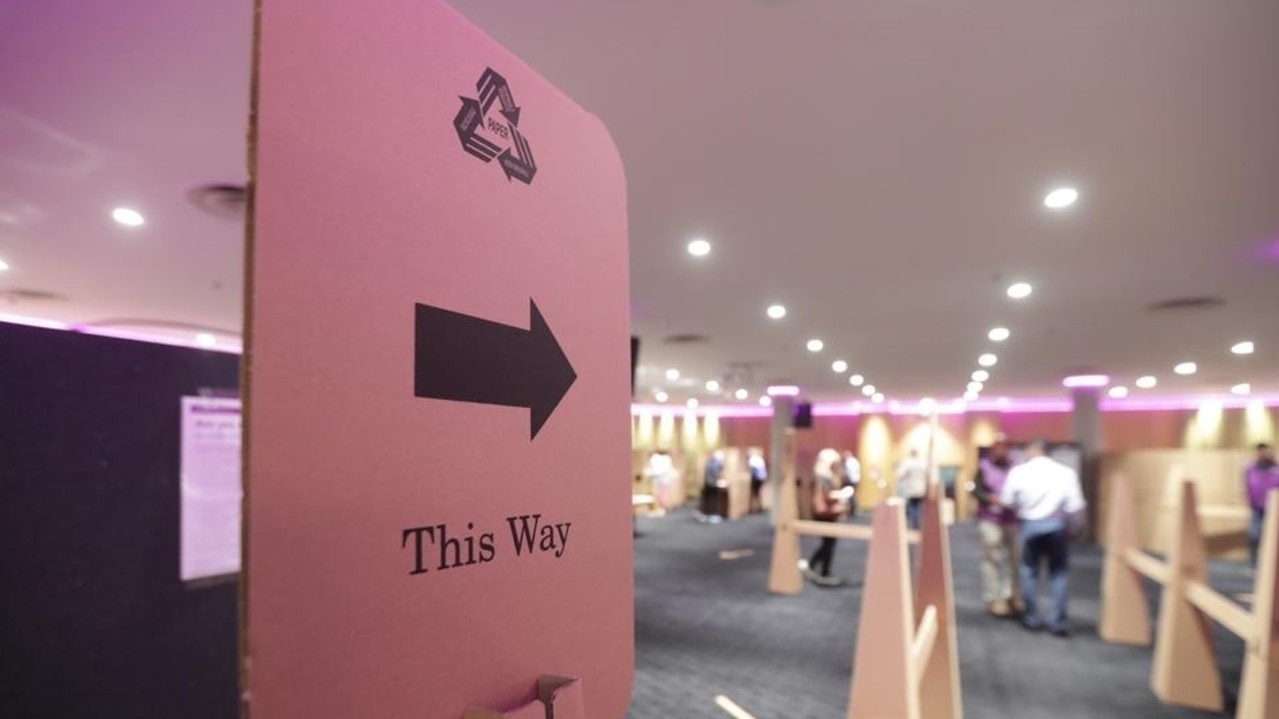Recession to hit us with the shock of our lives
Working Australians under 40 may be about to experience a version of 1991 first-hand, depending on how our leaders manage the immense challenges ahead.

All of the above highlights just how delicately balanced the Australian economy is right now. Indeed, so is the global economy. There are no easy answers, and little consensus, over how best to manage the situation.
Business is worried about rising costs: prices, wages, compliance you name it. It takes a very dim view of Fair Work decisions to significantly lift the minimum and award wages. It claims the only way many businesses can sustain higher wages is with higher prices, thus driving inflation higher too. Concern with wages growth is greater with the small-business community, which finds it harder to manage the extra expense.
There is an argument that government trying to mitigate the pain of rising inflation by supporting higher wages risks more job losses when the inevitable economic downturn follows. Don’t forget, the whole reason the Reserve Bank keeps putting the cash rate up is to slow the economy. The US central bank has been even more explicit, wanting a recession to confirm the days of excess are over.
Closer to home, while the business community fears wage rises fuelling a wage-price spiral among other concerns, the Labor government and union movement worry about those Australians at the lower end of the socio-economic spectrum. An entirely understandable ideological position to take. In fact, a very human reaction too.
The contested ground is whether or not helping these people with wage rises actually helps in the long run. Not if they lose their jobs. Not even if inflation remains stubbornly high, forcing prices up more than the wage increases provided.
Twelve interest rate rises in just over 12 months is certainly difficult for mortgage holders, especially those more recently encouraged into the market by government incentives that made it easier to borrow more. The repayments are a monthly problem for this cohort, but they will become a disaster if those under mortgage stress lose their jobs in a downturn.
Then there are the risks to house prices, which have remained remarkably high given events this past year. If they collapse – and there are signs that is about to happen at least at the lower end of the market – hundreds of thousands of Australians could be left with negative equity. That is, loans larger than the value of their property.
And let’s not forget about renters, who probably account for many of the low and award wage earners thanking Fair Work for the bump in their pay packets. When interest rates go up so do rents, especially when we have a supply problem getting worse courtesy of record migration (400,000 this year, 1.5 million over the next five years). What do renters do when they lose their jobs?
The answer is they must get a new job (harder in a downturn) or seek government assistance, which certainly won’t cover the rent. If more Australians line up for welfare support, that puts a strain on an already tight budget position. The five minutes of surplus sunshine delivered in the budget will remain just that. Recurrent expenditure funded by growing debt and enduring deficits has been a budget feature for years now. If the economy slows, that is only going to worsen. Exacerbated by reported rising costs of social programs such as the NDIS or continuing ballooning healthcare expenses.
The ageing of the Australian population is a serious threat to prosperity; the number one threat according to the government’s demographic study released last year. Our tax system isn’t fit for purpose to successfully manage an ageing population, too reliant on income taxes from those of working age. With estimates that the proportion of retirees to working-age Australians is set to double in the coming decades, the urgency of tax reform is nigh.
But tax reform requires federation reform, and if the pandemic proves anything it is that the commonwealth and states are happy to engage in stand-offs rather than work together. The other way to reform the federation is via constitutional reform, but what chance is there of that? Less than zero if the voice fails, which the latest polls suggest is on the cards.
If your hope is that bright minds will find a way through all of these challenges, reflect on the state of Australian politics. Indeed on the decline in the fourth estate, whose job it is to hold politicians to account. Also, the growing disconnect of voters to political decision-making, despite the growing connections technology provides.
Fewer good people embark on political careers than once did. While the gender and ethnicity profiles of parliament have widened (a good thing), the rest of the news about who seeks political office isn’t so positive. Pre-parliamentary careers are more narrow. Political careers are shorter. Courage in policymaking is absent. Raw public policy skills aren’t what they were, in parliament or among a bureaucracy that has been gutted and replaced with consultants.
Ultimately, leadership isn’t what it was – individually or within parties. And it’s not sufficiently rewarded on the rare occasions showing leadership still happens.
Make no mistake, the economic cycle is about to traverse into territory many adult Australians haven’t witnessed in their working lifetimes, if not their entire lifetimes. The pandemic recession didn’t count because the government assistance provided alongside the novelty of lockdowns set it apart from previous recessions.
The 1991 recession, off the back of double-digit interest rates, forcing double-digit unemployment, was over 30 years ago. I was only 15 at the time. I have the vaguest of memories of how hard it was getting casual work in the years that followed, but I studied long and hard enough that by the time I was looking for full-time work there were jobs in abundance.
Working Australians under 40 probably have no memory of that recession at all. They may be about to experience a version of it first-hand, depending on how our leaders manage the immense challenges ahead. It could be one hell of a shock.
Peter van Onselen is a professor of politics and public policy at the University of Western Australia and Griffith University.








Twelve interest rate rises since last year’s election campaign. Stubbornly high inflation. Wage decisions that risk a wage-price spiral. New economic data suggesting growth has all but come to a standstill, increasing the prospects of recession later this year or early next. Increasing unemployment forecast in the May budget might now undersell the threat of people losing their jobs in the months and years ahead.